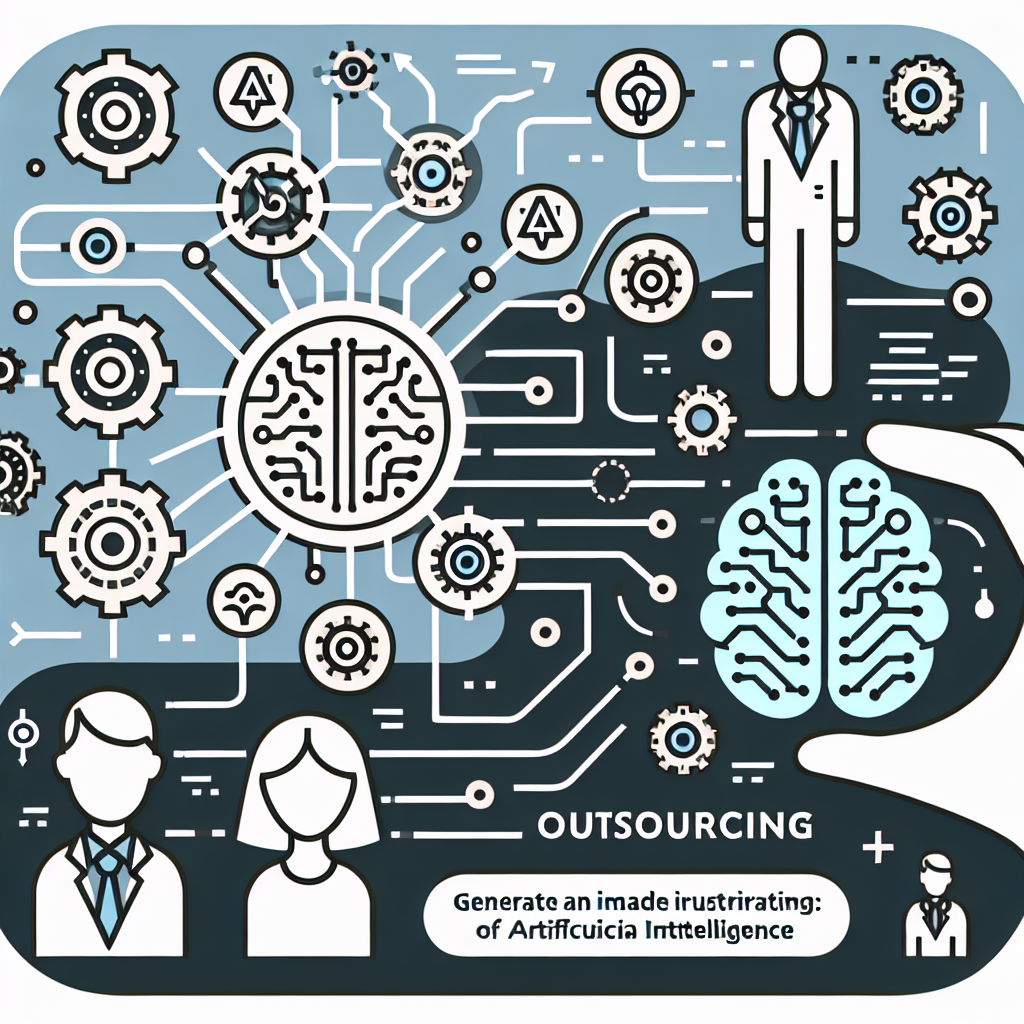Artificial Intelligence (AI) has become an essential tool for businesses looking to streamline processes, improve efficiency, and gain a competitive edge in today’s digital world. However, developing AI solutions in-house can be costly and time-consuming. This is where AI outsourcing comes in. By partnering with a third-party AI provider, businesses can access cutting-edge technology and expertise without the need for extensive investment in infrastructure and talent. In this guide, we will explore the basics of AI outsourcing for beginners, including key considerations, benefits, and common FAQs.
What is AI outsourcing?
AI outsourcing involves contracting with a third-party provider to develop, implement, and manage AI solutions on behalf of a business. This can include a range of services, such as developing custom AI algorithms, integrating AI into existing systems, and providing ongoing support and maintenance. By outsourcing AI projects, businesses can leverage the expertise and resources of specialized providers, allowing them to focus on core business activities.
Key considerations for AI outsourcing
When considering AI outsourcing, there are several key factors to keep in mind to ensure a successful partnership:
1. Define your goals: Before engaging with an AI outsourcing provider, clearly outline your business objectives and the specific AI solutions you require. This will help to align expectations and ensure that the provider can deliver on your requirements.
2. Evaluate provider expertise: Look for AI outsourcing providers with a proven track record of success in developing and implementing AI solutions. Consider factors such as the provider’s experience, technical capabilities, and industry expertise.
3. Data security and privacy: Data security is a critical consideration when outsourcing AI projects, as sensitive information may be shared with the provider. Ensure that the provider has robust security measures in place to protect your data and comply with relevant regulations.
4. Communication and collaboration: Effective communication is essential for successful AI outsourcing. Establish clear channels of communication with the provider and define roles and responsibilities to ensure a smooth collaboration process.
5. Scalability and flexibility: Choose an AI outsourcing provider that can scale their services to meet your changing business needs. Look for providers that offer flexible pricing models and customizable solutions to accommodate your requirements.
Benefits of AI outsourcing
There are several benefits to outsourcing AI projects, including:
1. Cost savings: Outsourcing AI projects can be more cost-effective than hiring and training an in-house team, as businesses only pay for the services they need, without the overhead costs of infrastructure and employee salaries.
2. Access to specialized expertise: AI outsourcing providers have specialized knowledge and experience in developing AI solutions, allowing businesses to access cutting-edge technology and expertise that may not be available in-house.
3. Faster time to market: By partnering with an AI outsourcing provider, businesses can accelerate the development and implementation of AI solutions, helping them to stay ahead of competitors and capitalize on new opportunities.
4. Focus on core business activities: Outsourcing AI projects frees up internal resources to focus on core business activities, such as strategy, innovation, and customer engagement, leading to improved overall efficiency and productivity.
5. Risk mitigation: AI outsourcing providers are responsible for managing risks associated with AI projects, such as technical challenges, data security, and compliance issues, reducing the burden on businesses and ensuring a smoother implementation process.
FAQs about AI outsourcing
Q: What types of AI projects can be outsourced?
A: AI outsourcing providers offer a wide range of services, including natural language processing, computer vision, machine learning, and predictive analytics. Common AI projects that can be outsourced include chatbots, recommendation engines, fraud detection systems, and personalized marketing campaigns.
Q: How do I choose the right AI outsourcing provider for my business?
A: When selecting an AI outsourcing provider, consider factors such as the provider’s experience, technical capabilities, industry expertise, and track record of success. It is also important to assess their communication skills, scalability, and flexibility to ensure a successful partnership.
Q: How can I ensure data security when outsourcing AI projects?
A: Data security is a critical consideration when outsourcing AI projects. Ensure that the provider has robust security measures in place to protect your data, such as encryption, access controls, and compliance with relevant regulations, such as GDPR and CCPA.
Q: What are the potential risks of AI outsourcing?
A: Common risks of AI outsourcing include technical challenges, data security breaches, compliance issues, and misalignment of expectations. To mitigate these risks, establish clear communication, define roles and responsibilities, and conduct regular monitoring and evaluation of the project.
Q: How can I measure the success of an AI outsourcing project?
A: To measure the success of an AI outsourcing project, define key performance indicators (KPIs) related to your business objectives, such as cost savings, efficiency improvements, customer satisfaction, and revenue growth. Regularly monitor and evaluate these KPIs to track progress and make adjustments as needed.
In conclusion, AI outsourcing can provide businesses with a cost-effective and efficient way to access cutting-edge technology and expertise, without the need for extensive investment in infrastructure and talent. By following the key considerations outlined in this guide, businesses can successfully navigate the process of outsourcing AI projects and reap the benefits of improved efficiency, innovation, and competitiveness in today’s digital landscape.

